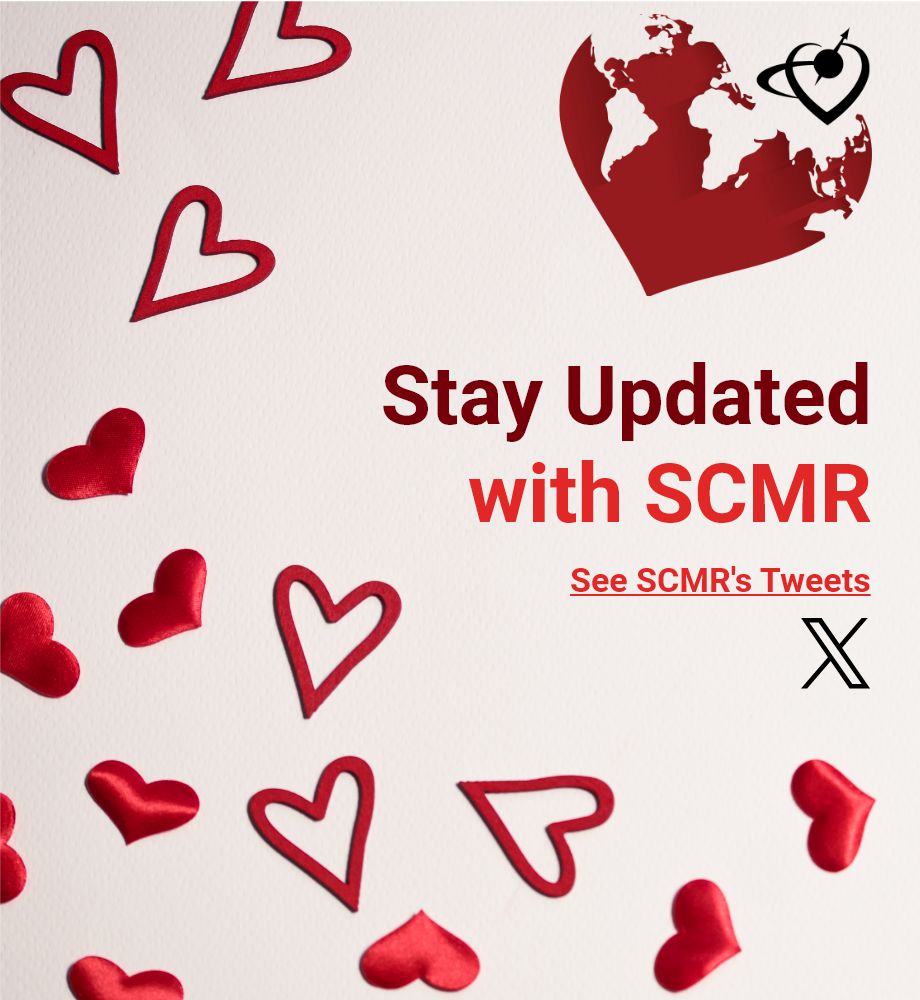SCMR is collaborating with the Amyloidosis Foundation in recognizing Amyloidosis Awareness Month, an awareness campaign designed specifically to bring attention to amyloidosis- a term that represents several different types of diseases where an abnormal protein called amyloid is produced. These amyloid protein fibers can attach and deposit into organs such as the heart, tissues, nerves and other places in the body, leading to amyloidosis and hindering the normal function of the specific area.
“Amyloidosis is not a disease that is commonly known and can lead to heart failure if gone undetected and untreated,” said SCMR member and PR Committee Chair Dr. Kanae Mukai, ABIHM, FACC, FSCMR. “CMR -or heart MRI- is an excellent way to noninvasively diagnose cardiac amyloidosis. Heart MRI can help differentiate cardiac amyloidosis from other potential causes of a cardiomyopathy. Through the use of heart MRI, the imaging provides a method to assess structure, function and deposition of amyloid in the extracellular tissues. Cardiac magnetic resonance also provides prognostic information for patients with a confirmed diagnosis. A major challenge is the current lack of early diagnosis for a patient with amyloidosis. Awareness of all the amyloidosis diseases by the medical community and by the public is essential in order to turn this around.”
Jason Conway was diagnosed by cardiologist and SCMR member Dr. Michael Wheat, FACC after having cardiac issues in January 2015. Conway was initially diagnosed with cardiomyopathy and after further investigation, Dr. Wheat ordered a heart MRI that indicated Jason had amyloidosis. Conway credits the knowledge and expertise of Dr. Wheat coupled with his ordering of the heart MRI with “treating my disease, rather than just treating my symptoms.”
Amyloidosis has been labeled as a rare disease by the US Office of Rare Diseases (ORD), which is a segment of the National Institutes of Health (NIH). As a classified rare disease by the US government, it is estimated that all of the types of amyloidosis combined affects less than 200,000 people in the US population. As research continues, this rare classification may change. Many experts suspect that some of the amyloidosis diseases are not that rare — just rarely diagnosed. As funding increases for research, the understanding of the amyloid diseases will lead the medical community toward diagnosing and treating amyloidosis.
Cardiac magnetic resonance imaging (CMR) is an innovative, noninvasive, radiation free method of viewing the heart, heart valves, arteries and veins of the body. Heart MRI uses powerful magnets and advanced computers to obtain both movies and still pictures of the cardiovascular system. These images are highly detailed, promoting accuracy, diagnostic and prognostic power and overall safety, often taking the place of other methods that medical providers use to view the heart. Medical providers use a heart MRI to answer questions about diseases that involve the heart or surrounding vascular system, utilizing the capabilities of a heart MRI to assess virtual heart biopsies, high-resolution perfusion and advanced blood flow analysis. An MRI of the heart can be done with newborns to adults after being evaluated by a physician or licensed heart specialist.
Resources:
- Amyloidosis Foundation
- Amyloidosis Patient Resources
- Cardiac Imaging in Amyloidosis
- Amyloid Patient Experience
Important Papers:
- Syed IS, Glockner JF, Feng D, Araoz PA, Martinez MW, Edwards WD, Gertz MA, Dispenzieri A, Oh JK, Bellavia D, Tajik AJ, Grogan M. Role of cardiac magnetic resonance imaging in the detection of cardiac amyloidosis. JACC Cardiovasc Imaging. 2010;3:155-164.
- Maceira AM, Prasad SK, Hawkins PN, Roughton M, Pennell DJ. Cardiovascular magnetic resonance and prognosis in cardiac amyloidosis. J Cardiovasc Magn Reson. 2008;10:54.







